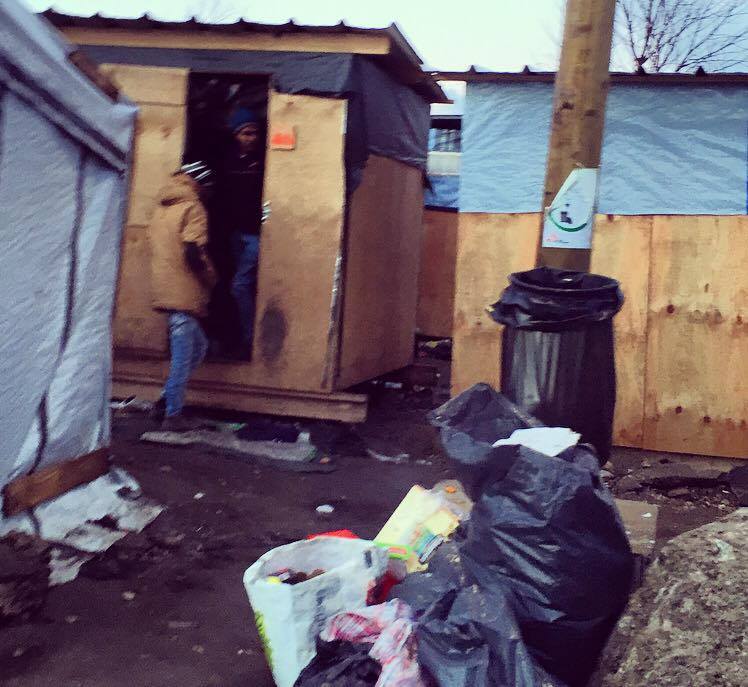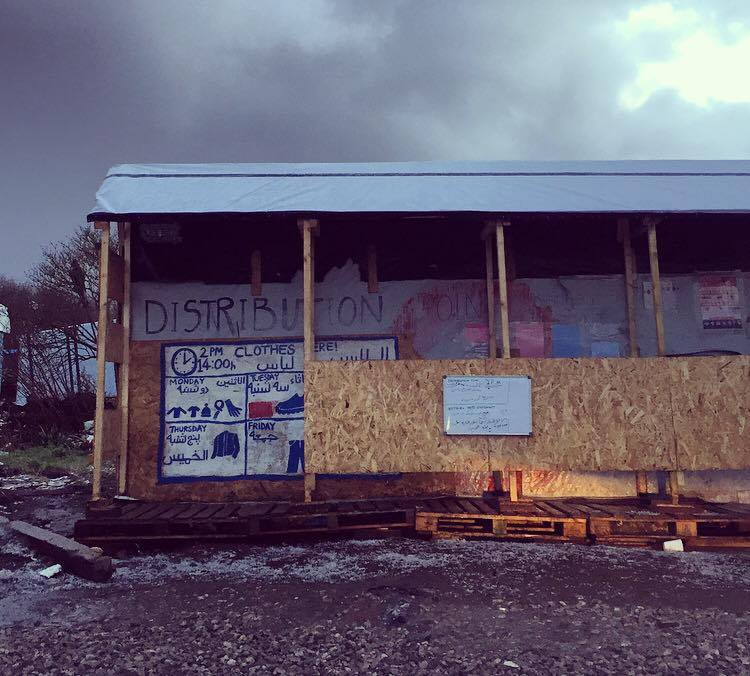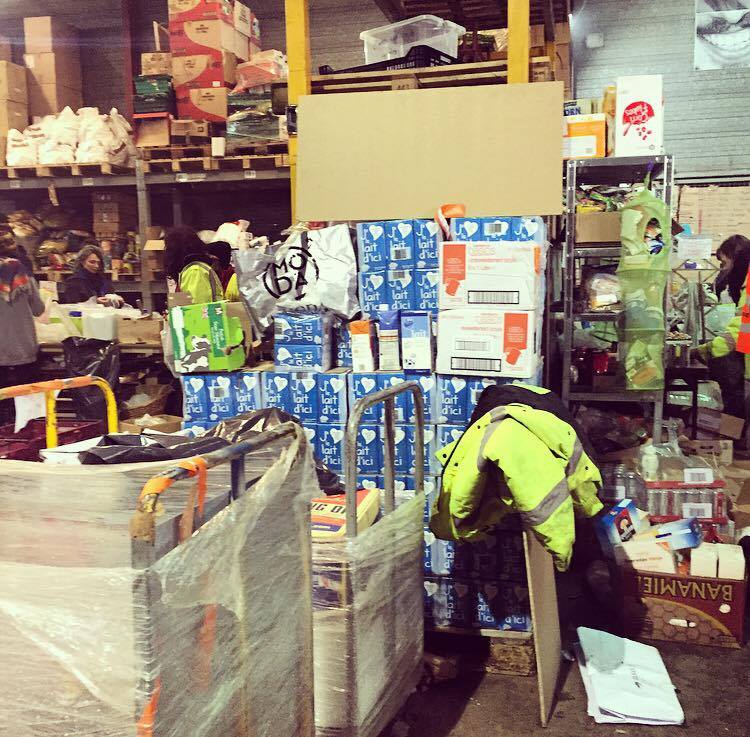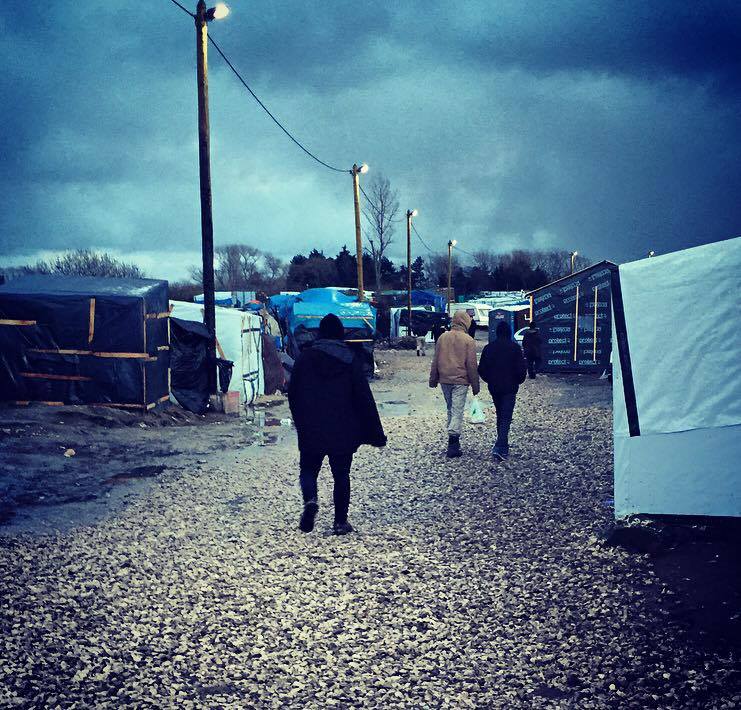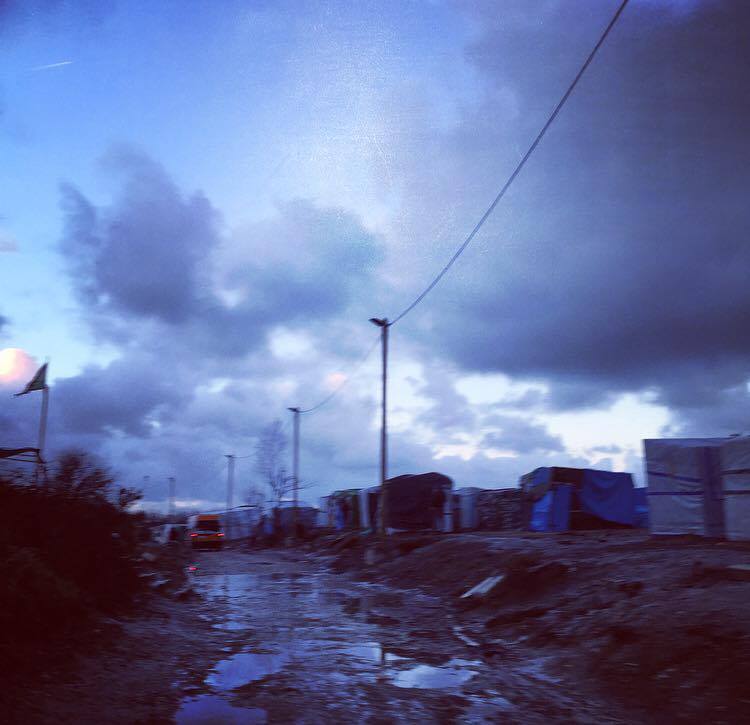“I just want to be sent back to Syria – at least I’d die quickly there. The Jungle Camp is killing me slowly.”
Calais, in France, is a ghost town. The majority of shops, cafes and restaurants are closed, the hostile locals constantly look on edge and the entire area is surrounded by armed French police and militia. The A16 highway, Calais’s main road, overlooks the Jungle Camp: rows and rows of miserable, damaged and displaced tents covering miles of field.
The Jungle refugee camp is home to roughly 9,000 refugees who have fled from war-torn countries such as Syria, Iraq, Afghanistan, Libya and Yemen. After fleeing conflict, the refugees continue to experience violence and sexual assault even in the Jungle Camp. Among them, at least 150 orphaned children wander the paths of the Jungle Camp, some only infants.
The haunting conditions of the Jungle camp
The Jungle camp is located directly next to the Calais-Dover ferry port. Over the past months, security surrounding the camp has tightened extensively. Fully armed French police wearing balaclavas and bullet proof vests surround the area.
Miles of tall barbed wire fences surround the highway, built by the UK after a number of refugees stormed the ferry port last year. It remains difficult for foreign aid and volunteers to enter the Jungle Camp, with the only way to enter and avoid police presence being to follow experienced volunteers through a back entrance. Unstable muddy, flooded paths cover the grounds, littered with rubbish and human detritus. Temperatures in the winter months easily drop below freezing.
Volunteers have built a distribution shelter near the centre of the Jungle, with a whiteboard on the front explaining – in both English and Arabic – the times refugees can collect essential clothing. A number of other things have been built in the Jungle Camp too, including an education centre, a church, a youth centre, makeshift homes, a kitchen, football fields, a legal advice centre, and children and women’s shelter, and a vaccination tent.Despite the fact a community has been built, the Jungle lacks essential safety and security. There have been reports of angry locals entering the refugees’ tents at night and attacking them with knives and knuckle dusters, as well as claims of armed far-right militia taking refugee men into fields near the camp, stripping them naked, tying their hands behind their backs, and taking it in turns to beat them.
The vital work of volunteersThe Jungle Camp is not government-funded and relies solely on the commitment of volunteers, as well a donations. Some volunteers have moved to the camp permanently, dedicating their lives to helping refugees living there.
One of the most well-known organisations working in the camp is L’Auberge des Migrants (Help Refugees). They rely solely on donations and work in areas of the world where refugees aren’t supported by the government. Not only do they work on a daily basis to supply refugees with essentials such as food, water, sleeping bags and clothes, but they also built 130 shelters at the Jungle camp and provide flood lights, heaters, tents and firewood.
Volunteers at the camp work long days, unloading delivery trucks, sorting donations, cooking, and putting together food bags. They travel to the Jungle Camp from all over the UK to work at the warehouse with L’Auberge des Migrants, with some staying for a weekend, while others stay for months. The atmosphere at the warehouse is always positive and uplifting, with volunteers chatting, singing and dancing to keep spirits high.
Chris Cotter, 23, spent a week working with L’Auberge des Migrants, helping build a new road into the camp before authorities began the destruction. He said:“The conditions are grim to be honest. I don’t think the French want them there, and I don’t think the refugees want to be there, it’s just making the best of a bad situation.”
Chris noted that he hadn’t been in the Jungle camp long enough to make a judgement on whether the refugee crisis was a Syrian crisis, but said that he had met refugees from Sudan, Afghanistan and other countries, giving him the realisation that this was a global situation. He added:
“I just think in general the refugee crisis is just getting worse and it’s not going to get any better any time soon because of the way the world is – it is just so unfair. Everyone deserves the chance of having a better life.”
Destruction of the Jungle Camp
On 15 February, French authorities visited the Jungle and announced plans to destroy parts of the camp, with the aim of rehabilitating all refugees in containers next to the camp or encouraging them to seek asylum in France.
An anonymous volunteer said:
“I was furious she [authorities’ spokeswoman] announced plans to knock down the camp. When word spread and the refugees started finding out it was havoc. Where do they think these people are going to go? It’s already a state.”
Following the announcement, a journalist asked French authorities what the situation would be in regards to providing food for refugees. With a laugh, the spokeswoman responded: “I don’t know because I wasn’t at the meeting last week when it was discussed.”
The volunteer added: “I couldn’t believe it when she laughed at the question. I wanted to hit her. Who does she think she is? They’re humans. One refugee said to me yesterday, ‘I want to go back home. At least in Syria I would die quickly – they’re killing me slowly here in Calais.’ How sad is that? How messed up in the head do you have to be to have that mindset? That you’re making a decision on how to die because living just is not an option anymore?”
The French authorities stuck to their word and on 2 March 2016 the police and army began the destruction of the Jungle Camp. Sophie Miller, a volunteer in Calais, was at the camp to witness the horrific scenes. She began providing medical support when she first saw the picture of Aylan Kurdi, a Syrian infant who washed ashore in Turkey and made international headlines.
She said: “The situation in Calais is dire. On the day of the destruction I watched people sew their lips together in protest with non-sterile equipment. I also watched a heavily pregnant woman scramble on top of her house in protest, only to be beaten down by the French police.”The 29-year-old volunteer cares for two small boys in Calais, who were “petrified of going outside due to the excessive tear gas used”. Sophie believes the temporary situation they live in is bad enough, and cannot understand why the refugees need to be constantly moved.
“The French police are absolutely brutal to them, I had to suture a seven-year-old’s head a few weeks ago due to being beaten by the CRS. They are tired, displaced and stateless, and the dream they were sold is showing to be a lie.”
Sophie added: “I literally treat people and no doubt see them again the next day for treatment, all the while keeping an eye on lone children and the company they keep. In Calais. In 2016. Sickening isn’t it?”
At least 3,445 refugees are said to have been displaced from their temporary home when the Jungle Camp was destroyed.
A large majority of refugees are now stuck in what can only be described as purgatory. They are playing a waiting game – hoping to one day fulfil their dream of reaching the UK or being reunited with their families. The refugees in the Jungle constantly live in fear.


